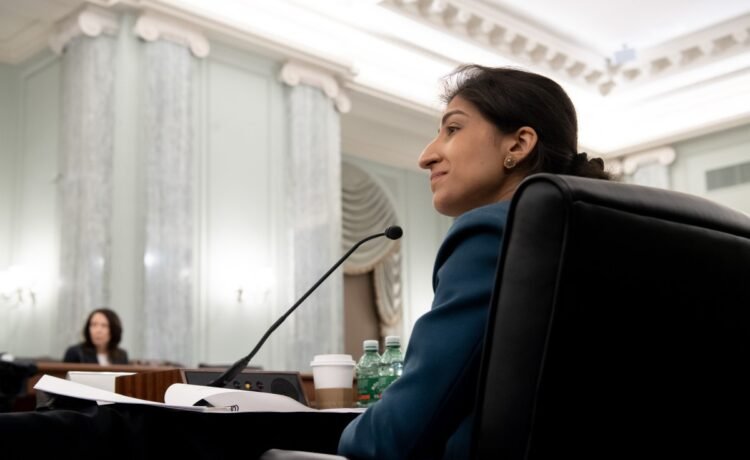The U.S. Federal Trade Commission is focusing its efforts on going after Big Tech, according to FTC Chair Lina Khan, who spoke at TechCrunch’s Strictly VC event in Washington, D.C., on Tuesday.
Khan said the agency is focused on going after the players that are doing the biggest harm, as opposed to just increasing the number of cases that it brings forward. “One thing that’s been important for me is to make sure that we’re actually looking at where we see the biggest harm,” Khan said. “Where do we see players that are systematically driving these illegal behaviors? Being able to go after the ‘mob boss’ is going to be more effective than going after the henchman at the bottom.”
The comments come a few days after The Wall Street Journal reported that the FTC is opening up an antitrust probe of Microsoft over its partnership with Inflection AI. The FTC and the Department of Justice have struck a deal to investigate Microsoft, Open AI and Nvidia over potential antitrust violations, according to The New York Times.
The FTC has also gone after Meta, Amazon, Google, Apple and others over the past years.
Khan says the FTC wants to be effective in its enforcement strategy, which is why it has been taking on lawsuits that “go up against some of the big guys.” If the FTC is successful, it can have a beneficial impact on the marketplace, she said.
The types of cases that the FTC selects can act as a deterrent, she said, noting that the FTC is already seeing that happen. “Five or six or seven years ago, when you were thinking about a potential deal, antitrust risk, or even the antitrust analysis, was nowhere near the top of the conversation. And now, it is up front and center. And so, for an enforcer, if you’re having companies think about that legal issue on the front end, that’s a really good thing, because we’re not having to spend as many public resources taking on deals.”
Speaking to an audience of startup founders and VCs who see exits as a big path, Khan noted that what the law really prohibits is an exit or acquisition that’s going to fortify a monopoly or allow a dominant firm to form a competitive threat.
Khan said that in any given year, the FTC sees up to 3,000 merger filings reported to the agency and that around 2% of those deals get a second look by the government.
“So you have 98% of deals that, for the most part, are going through,” she said. “If you are a startup or a founder that is eager for an acquisition as an exit, a world in which you have five or six or seven or eight potential suitors, I would think, is a better world in which you just have one or two, right? And so, actually promoting more competition at that level to ensure that startups have you know more of a fair chance of getting a better valuation, I think would be beneficial as well.”
You Might Also Like
Fizz, the anonymous Gen Z social app, adds a marketplace for college students
Teddy Solomon just moved to a new house in Palo Alto, so he turned to the Stanford community on Fizz...
HealthEquity says data breach is an ‘isolated incident’
On Tuesday, health tech services provider HealthEquity disclosed in a filing with federal regulators that it had suffered a data...
Roll20, an online tabletop role-playing game platform, discloses data breach
The popular online tabletop and role-playing game platform Roll20 announced on Wednesday that it had suffered a data breach, which...
Fisker asks bankruptcy court to sell its EVs at average of $14,000 each
Fisker has a willing buyer for its remaining inventory of all-electric Ocean SUVs, and has asked the Delaware Bankruptcy Court...









